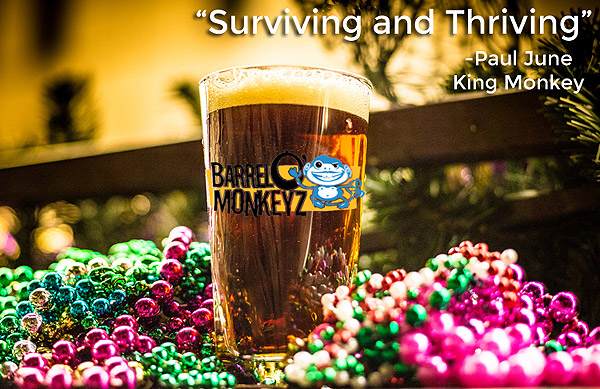Mardi Gras seemed to come and go this year with little fanfare. In fact, if New Orleans hadn’t been featured as a backdrop to some of my favorite TV shows, I might not have noticed its arrival and departure at all—though I do recall seeing an online feature on Rio de Janeiro’s “Carnival” celebration . . . but that’s about it.
Maybe it’s because Mardi Gras occurred a little earlier this year (February 17) than the last few, or maybe it’s just that here in the USA, a prolonged cold and snowy winter (even in the deep south) has stymied a bit of the nation’s celebratory mood, leaving the media and most everyone else somewhat disinterested. Or maybe it’s just me.
Whatever the case, Mardi Gras is much more than an excuse for drinking and rabblerousing. For Christians, it’s a time for celebration and letting go before the season of sacrifice that follows.
I wrote a short blog about Mardi Gras four years ago. In it, I contemplated how Mardi Gras (representing excess) and the Christian Season of Lent (representing sacrifice) was analogous to our current economic cycle.
- Has much changed for us in those four years?
- Has much changed for friends, family, and loved ones?
- Looking the world over, has much changed at all?
All politics aside, to paraphrase the immortal words of Ronald Reagan during the 1980 presidential debates, “Are we better off than we were four years ago?”
It’s hard to tell whether we’re better off, worse, or simply maintaining the status quo. With that in mind, re-read my earlier blog, then feel free to offer your answers. Curious monkeys want to know.
Surviving and Thriving
(Originally Posted on March 22, 2011)
Mardi Gras has come and gone. There was lots of celebrating leading up to Fat Tuesday, followed by what many call “Trash Wednesday” (which is actually “Ash Wednesday”), the inevitable and much dreaded “day after.”
While Mardi Gras is popularly depicted as a time for parades, balls, and widespread partying, at its roots, Mardi Gras is based in religion, specifically the celebratory period leading to the Christian season of Lent, which is a time of sacrifice.
So it was in this vein I got to thinking the other day about how Mardi Gras closely resembles our current economic cycle. (I know, I know, it’s heady stuff coming from a King Monkey, but bear with me.)
If we think of the 1990s as our economic Mardi Gras, culminating with Fat Tuesday, then this decade (especially in recent years) represents “the day after” and the season of sacrifice to follow.
What have you had to sacrifice to keep your business afloat? How does the reality of today’s economy resemble the “good old days”? How is it different for you, personally and professionally?
I thoroughly believe the world needs more people who are willing to help one another out during tough times. My hope is that if I give 80% of the time, that 20% will come back to me.
For you new entrepreneurs, still wet behind the ears, who have never experienced a roaring economy, how have you managed to survive and thrive in times of scarcity?
Let us know. We monkeys like to share ideas!


Trackbacks/Pingbacks